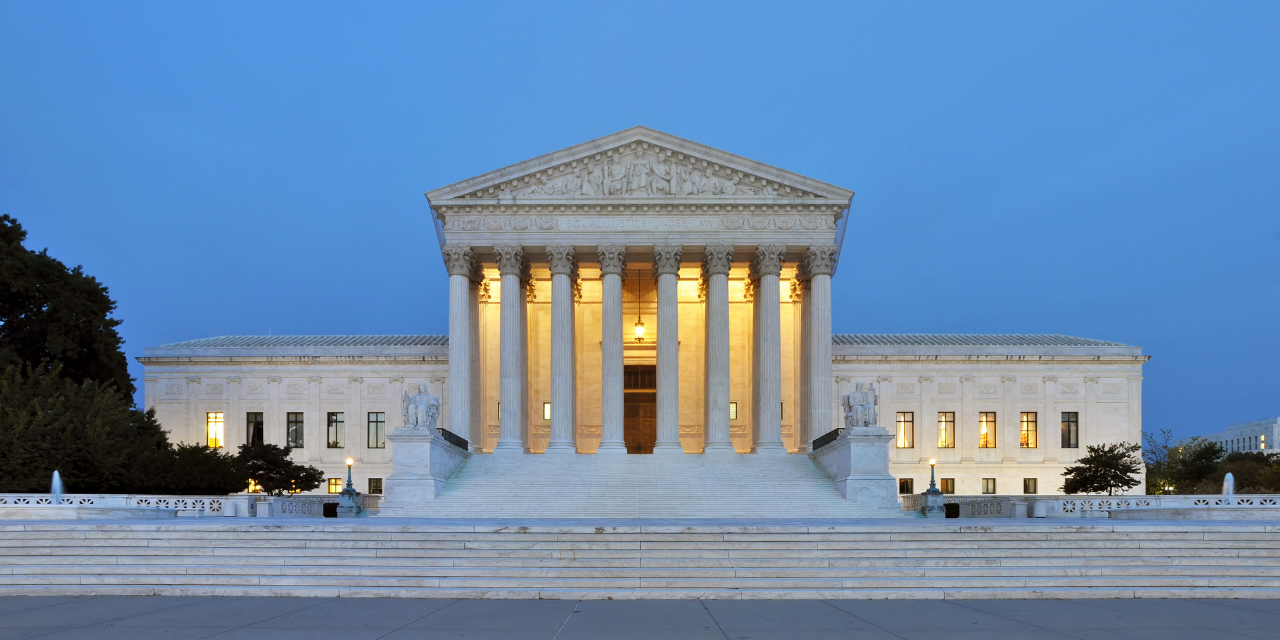The U.S. Supreme Court issued rulings in two important cases on January 13 involving vaccination mandates from two different government agencies. In one case, the court temporarily blocked an OSHA mandate affecting 84 million workers, and in the other, it allowed a Centers for Medicare & Medicaid Services mandate to go into effect for 17 million healthcare workers while the case proceeds in the lower courts.
In the OSHA case, involving a vaccination or masking and testing requirement affecting 84 million American workers, the justices, in a 6-3 decision, issued a “stay” blocking a lower court ruling that would have allowed the mandate to go into effect.
“The Secretary has ordered 84 million Americans to either obtain a COVID–19 vaccine or undergo weekly medical testing at their own expense,” the court’s unsigned opinion reads. “This is no ‘everyday exercise of federal power.’ … It is instead a significant encroachment into the lives—and health—of a vast number of employees.”
The court’s ruling comes after the 6th U.S. Circuit Court of Appeals issued an order on December 17 allowing the mandate to take effect. The case now goes back to the 6th Circuit for further proceedings.
Jim Daly, President of Focus on the Family released the following statement after the ruling was made public:
“Today’s decision blocking the Biden administration’s sweeping mandate is a victory for freedom and a resounding defeat of egregious and intrusive government overreach. No administration or federal agency should be permitted to force employers and employees to violate their deeply held convictions or burden them with onerous and intrusive unconstitutional edicts. We applaud the Supreme Court’s principled ruling and all indications suggest this stay will be permanent. As we approach the two-year anniversary of the COVID-19 scourge, we pray for an end to this awful global pandemic and ask God to have mercy on a world weary and eager for a return to normalcy.”
Justice Neil Gorsuch wrote a concurring opinion, which was joined by Justice Clarence Thomas and Justice Samuel Alito. One particular point from the concurrence emphasized a point not made in the court’s majority opinion, i.e., that important policy decisions affecting huge sectors of the economy cannot, under our constitutional system, be left to agencies.
“If Congress could hand off all its legislative powers to unelected agency officials,” Gorsuch wrote, “it ‘would dash the whole scheme’ of our Constitution and enable intrusions into the private lives and freedoms of Americans by bare edict rather than only with the consent of their elected representatives.”
Justices Stephen Breyer, Sonia Sotomayor and Elena Kagan issued a joint dissent from the court’s ruling.
“In our view, the Court’s order seriously misapplies the applicable legal standards,” the dissent argues. “And in so doing, it stymies the Federal Government’s ability to counter the unparalleled threat that COVID–19 poses to our Nation’s workers. Acting outside of its competence and without legal basis, the Court displaces the judgments of the Government officials given the responsibility to respond to workplace health emergencies.”
In the second vaccine mandate case heard by the court a week ago, the justices ruled 5-4 that a vaccination requirement for healthcare workers in facilities receiving either Medicaid or Medicare funds could go into effect. Chief Justice John Roberts, and Justices Brett Kavanaugh, Stephen Breyer, Sonia Sotomayor and Elena Kagan were in the majority. The four dissenters were Justices Clarence Thomas, Samuel Alito, Neil Gorsuch and Amy Coney Barrett.
The cases are National Federation of Independent Business v. Department of Labor, Occupational Safety and Health Administration and Biden v. Missouri.
Photo from Shutterstock.






